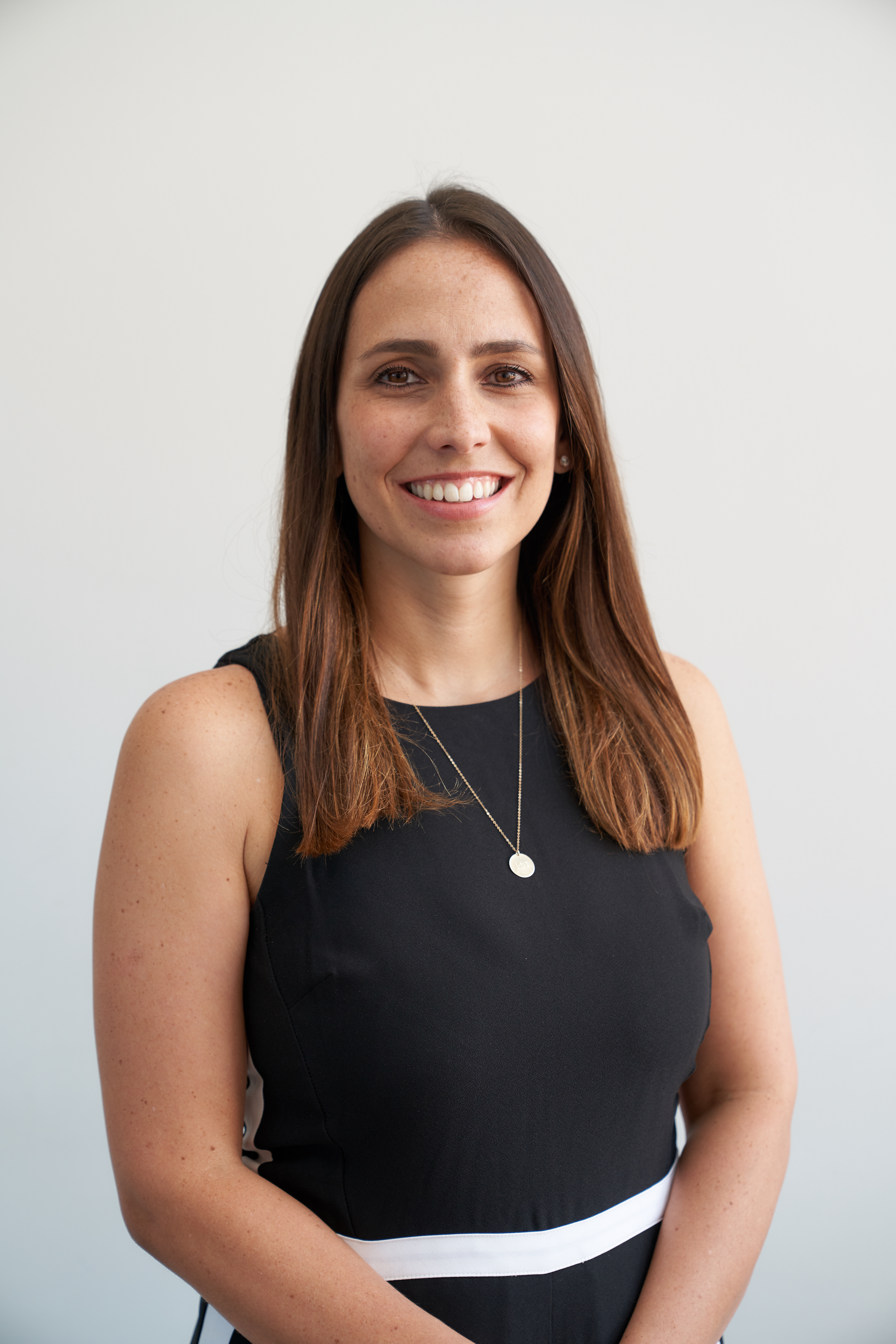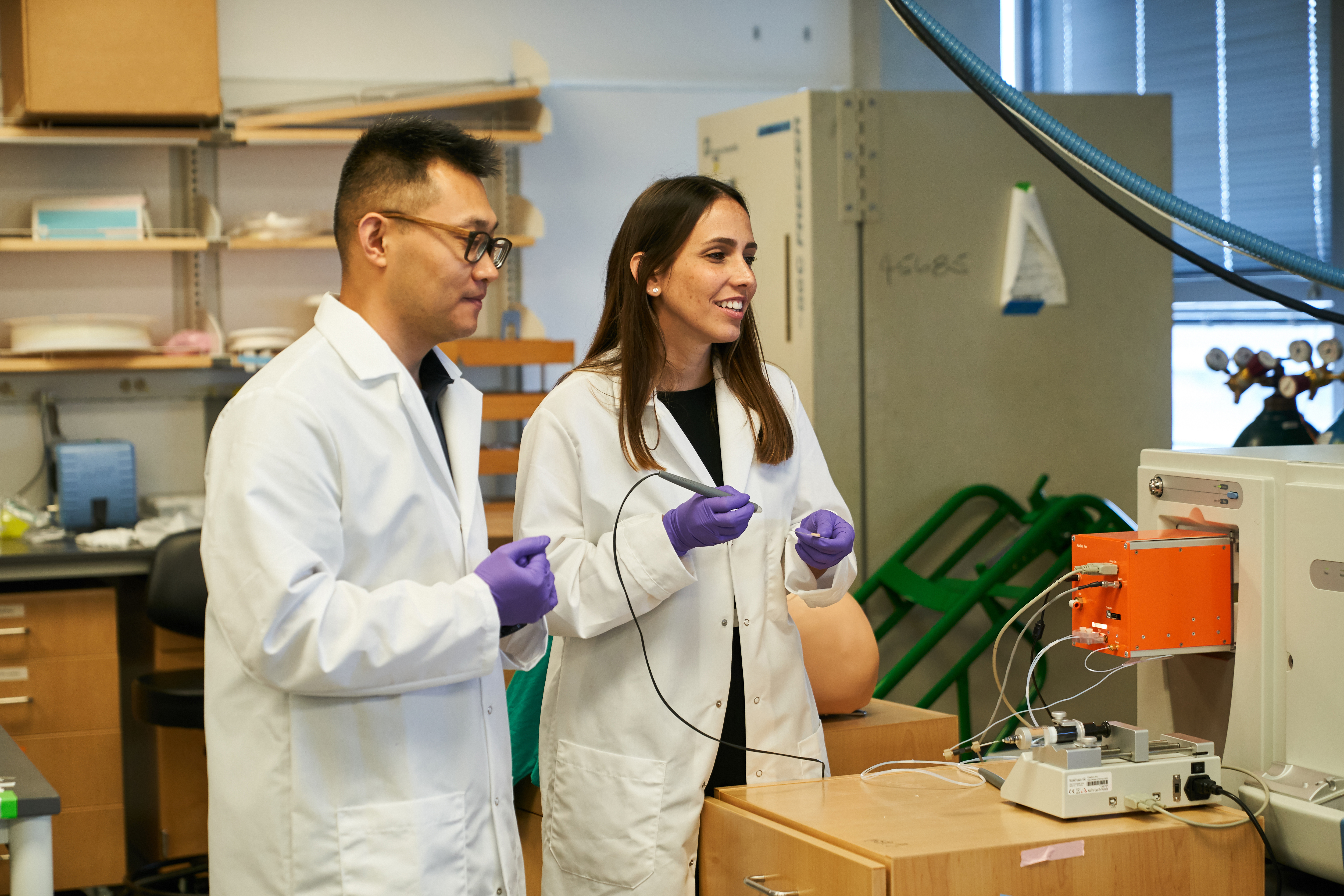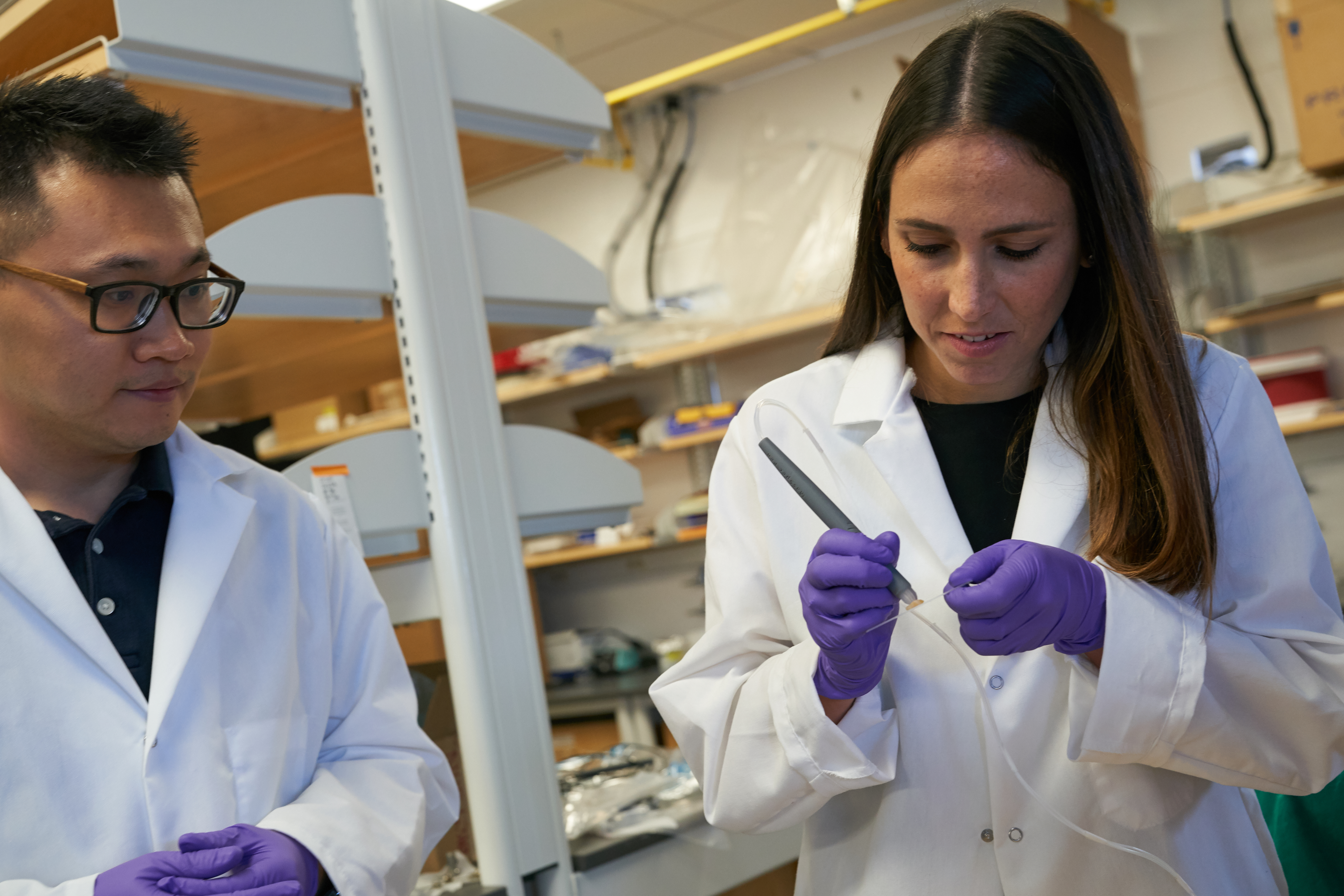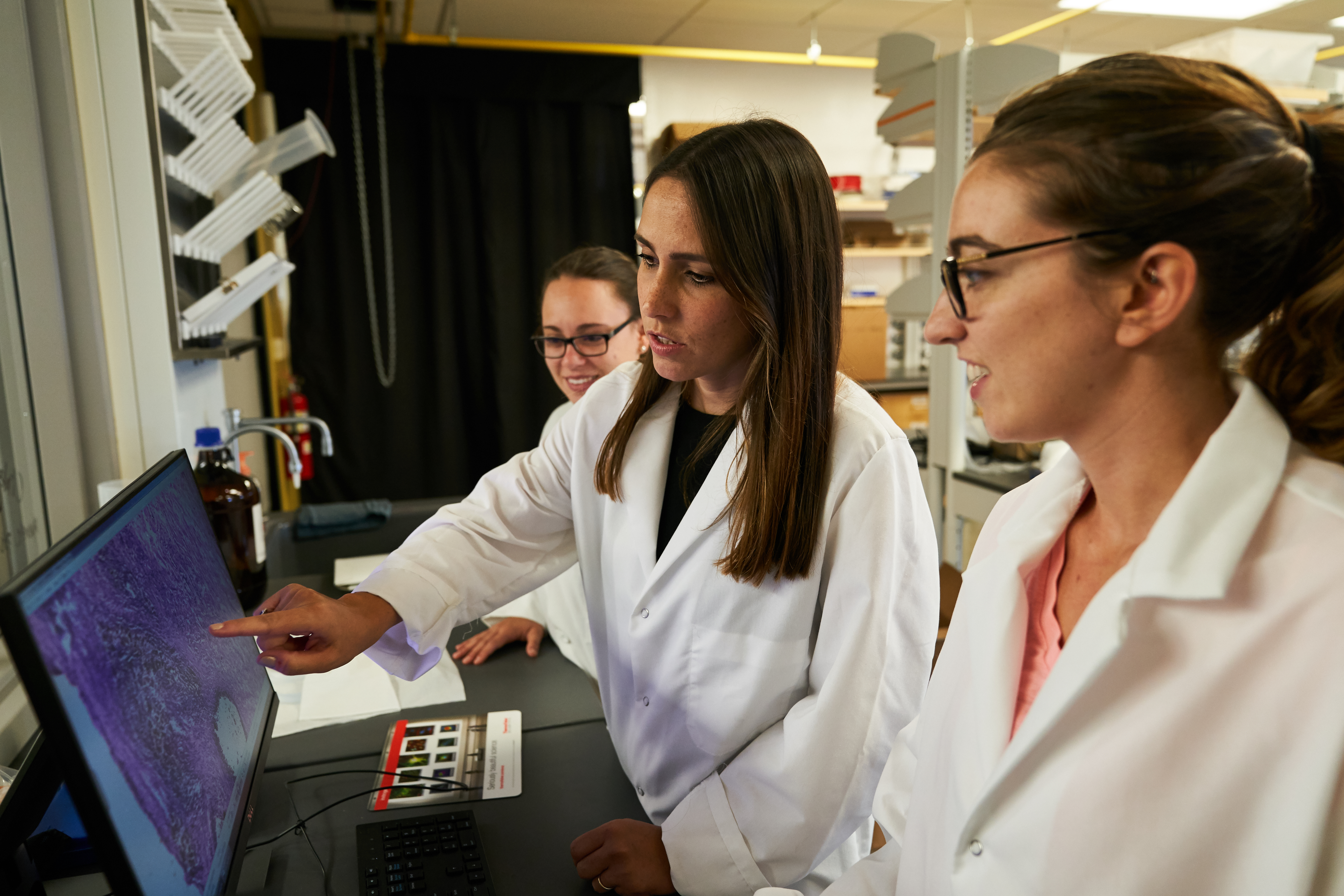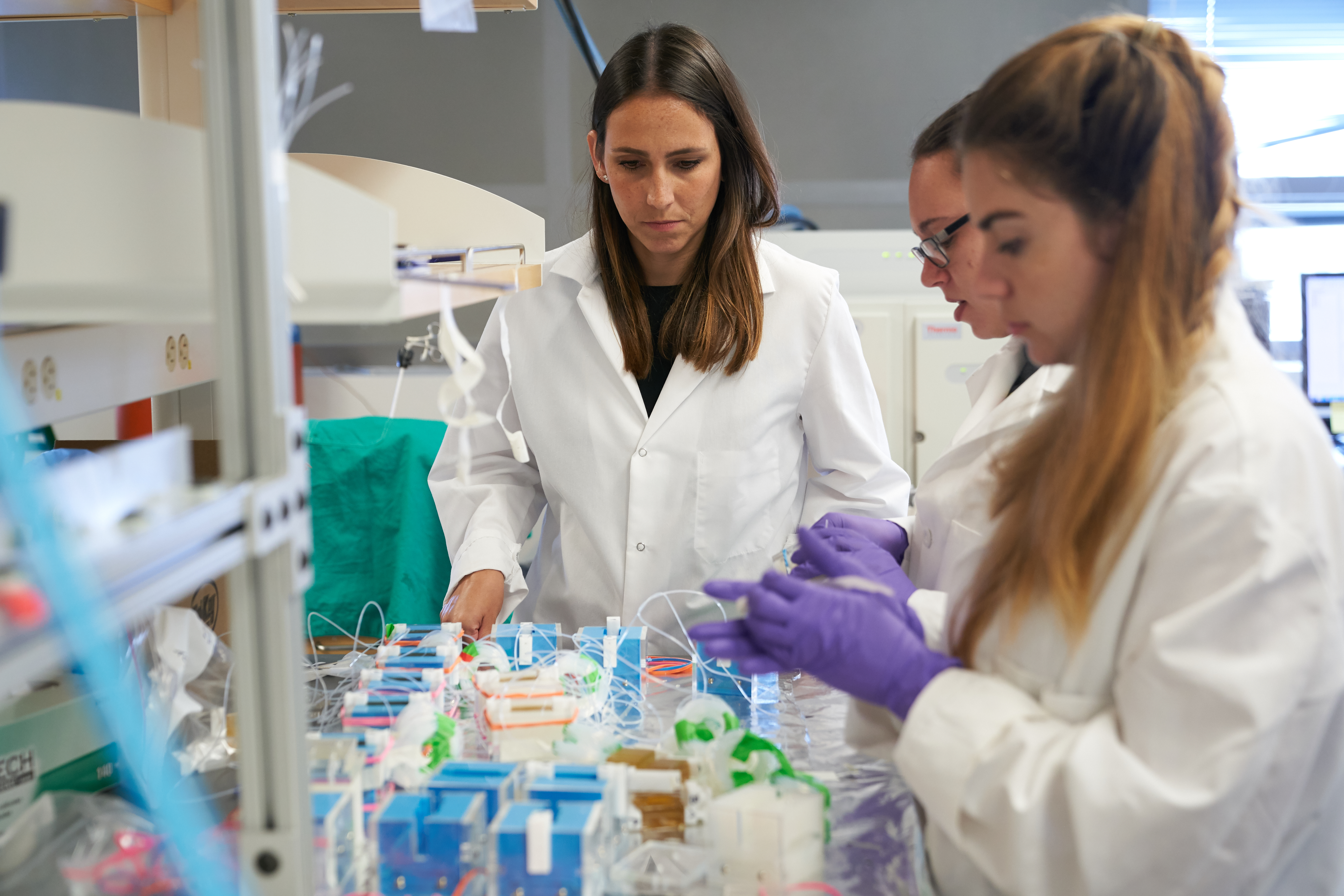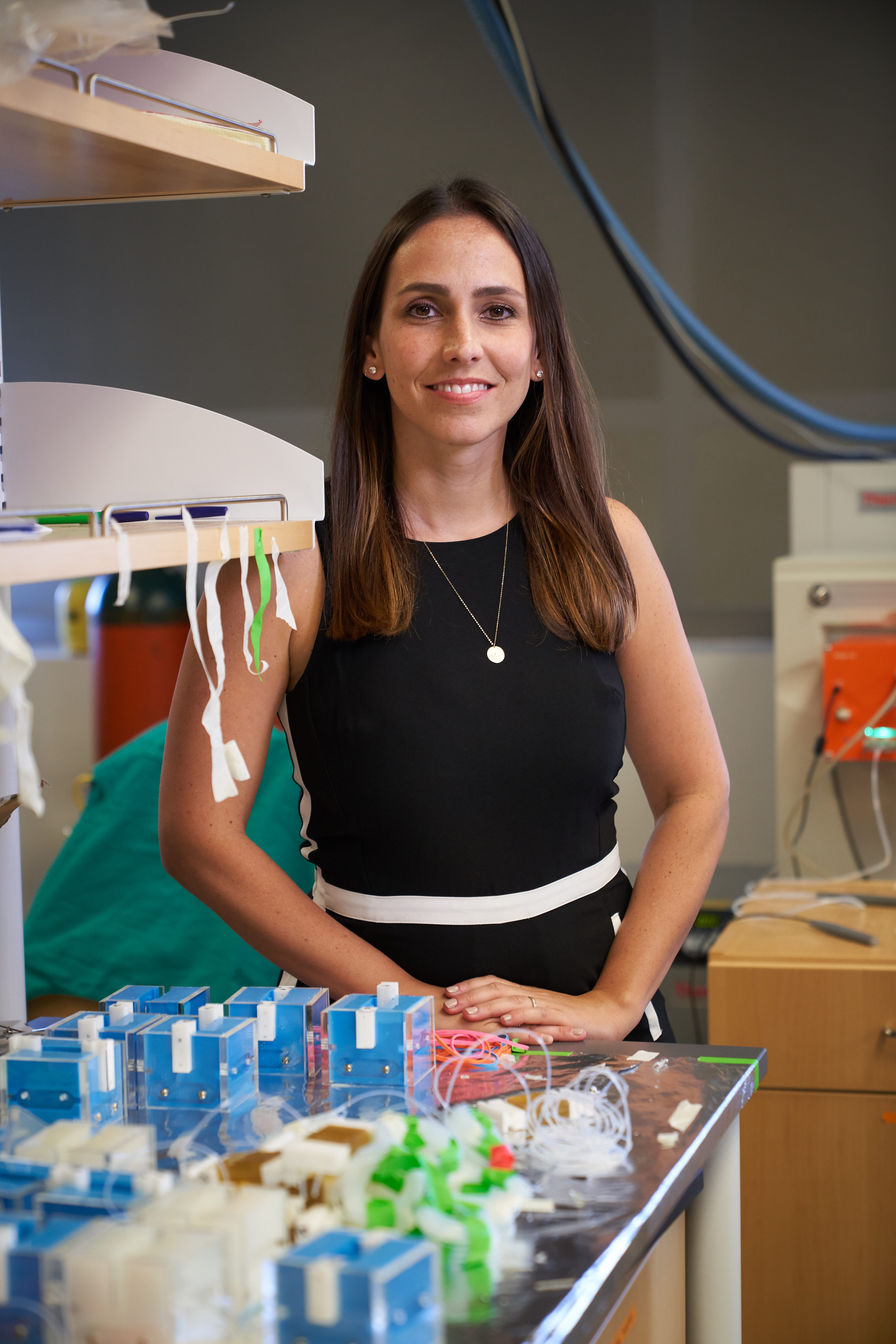About Livia's Work
Livia Eberlin is an analytical chemist developing innovative mass spectrometry technologies for more efficient and accurate clinical diagnosis and surgical treatment of cancer. Evaluation of tumor margins—that is, determining the boundary between cancerous and healthy tissue—is a critical problem in cancer surgery, particularly for brain tumors where keeping as much healthy tissue intact as possible significantly impacts the patient’s future quality of life. The traditional approach to margin evaluation is microscopic analysis of biopsied tissue, a process that prolongs surgery times or requires waiting several days for test results.
Using a multidisciplinary approach bridging analytical chemistry, machine learning, engineering, clinical diagnostics, and surgical practice, Eberlin is developing ambient mass spectrometry–based imaging methodologies and instrumentation for the immediate, in situ chemical analysis of tissues. Mass spectrometry (MS) is a method for analyzing the chemical composition of matter by separating ionized (positively or negatively charged) molecules based on their mass-to-charge ratio in an electric field. Ambient MS imaging enables detection of the spatial distribution of molecules in a given sample under ambient conditions (that is, at atmospheric pressure and room temperature). Eberlin has optimized ambient MS imaging for detection of new molecular markers of diseased tissue, including abnormal expression and composition of mitochondrial lipids and distribution of proteins.
She and collaborators have harnessed this technology for clinical applications in the MasSpec Pen. The MasSpec Pen extracts biomolecules from cancerous and surrounding normal tissues without destroying the living tissue. These biomolecules are then analyzed using mass spectrometry and the tissue is characterized using a machine learning algorithm based on previously validated diagnostic data. This platform identifies cancerous tissue with a high degree of sensitivity, specificity, accuracy, and speed, and Eberlin is currently refining and testing the MasSpec Pen for use in surgery. Her technological innovations have the potential to improve health care by decreasing the time between diagnosis to treatment and increasing the accuracy of cancer diagnoses and surgical interventions.
Biography
Livia S. Eberlin received a B.S. (2007) from the Universidade Estadual de Campinas and a Ph.D. (2012) from Purdue University. She was a postdoctoral fellow at Stanford University from 2012 to 2015, and in 2016 she joined the faculty of the University of Texas at Austin, where she is currently an assistant professor in the Department of Chemistry. Her articles have been published in such scientific journals as Analytical Chemistry, Cancer Research, Proceedings of the National Academy of Sciences, Angewandte Chemie, and Science Translational Medicine, among others.
Published on October 4, 2018








